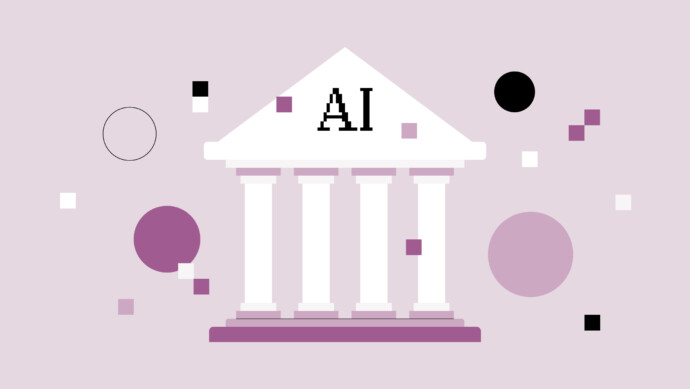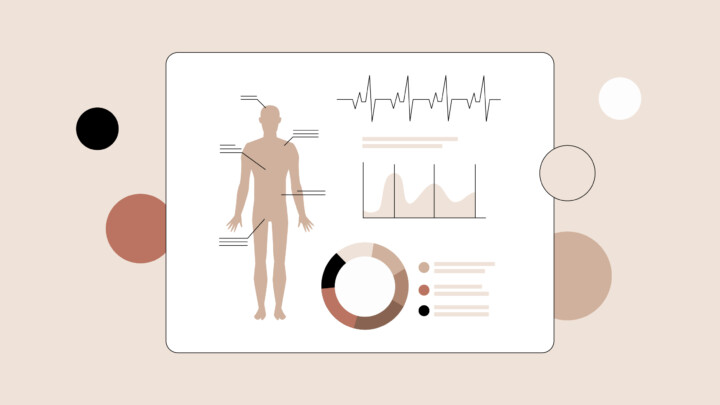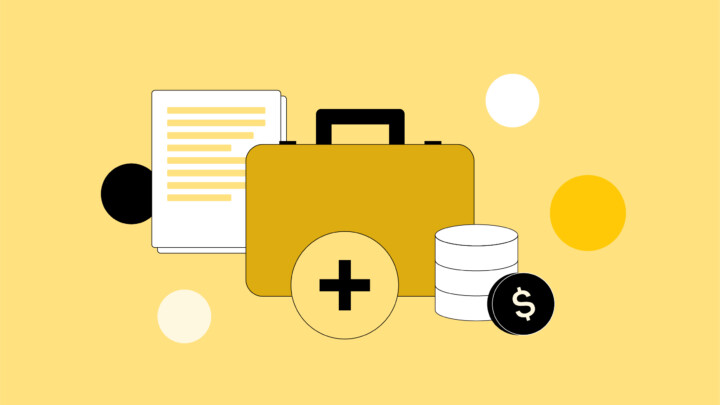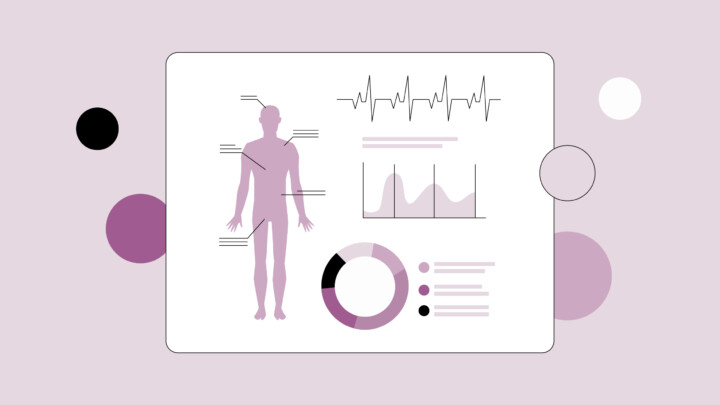
Introduction
Artificial Intelligence (AI) is no longer a futuristic concept in healthcare. It is now shaping everything from diagnostics to administration, offering solutions to streamline care and reduce clinician burden. On Sermo, where over 1 million physicians gather, artificial intelligence is one of the most debated and discussed topics. This guide curates perspectives from across the Sermo community, polling data, and physician-authored insights to offer a comprehensive overview of how AI systems are being used today, what they promise, and what limitations still exist.
What is AI in healthcare?
AI in healthcare refers to systems capable of performing tasks that typically require human intelligence, including image recognition, language processing, predictive analytics, and decision support. These technologies are deployed across:
- Medical imaging and diagnostics
- Predicting patient outcomes
- Automating EHR and admin workflows
- Enhancing communication through conversational AI tools
- Creating efficiency in workload to reduce burnout and improve patient care
While AI holds vast promise, physicians remain cautious, especially when it comes to replacing human clinical judgment.Learn more about AI’s role in healthcare.
Clinical use cases: diagnosis to decision support
Medical diagnosis and imaging
AI tools like Mia for breast cancer have demonstrated the ability to detect up to 13% more cancers than radiologists. Sermo physicians acknowledge these improvements, especially in radiology, pathology, and dermatology. However, many point to limitations around complex, nuanced cases that still require physician oversight. As one Sermo radiologist put it, “AI can flag potential issues faster, but confirmation always lies with the clinician.”
Predicting patient outcomes
According to a Sermo poll, physicians are evenly split on whether AI systems can accurately predict outcomes like life expectancy. Only 9% said they’d be highly likely to trust an AI-generated mortality estimate. The consensus: artificial intelligence must support, not replace, human clinical reasoning in patient care. This tension between prediction and interpretation is especially acute in high-stakes fields like oncology and critical care.
Personalized treatment planning
AI can analyze data from genomics, clinical history, and real-time health metrics to tailor treatment strategies. 17% of surveyed physicians say this is AI’s greatest value. However, the diversity of data is critical; if datasets aren’t representative, AI systems risk perpetuating existing disparities in patient care. For example, Sermo members have flagged that machine learning tools trained on narrow populations may misguide treatment decisions in underrepresented groups.Discover how AI is supporting diagnosis and the predicting of patient outcomes.
Physician sentiment: optimism vs skepticism
Burnout and administrative relief
Physician burnout is widespread. 21% cite administrative burden as the top cause. In a Sermo survey, 78% believe AI can improve efficiency by automating EHR tasks and documentation. AI Tools already exist to:
- Automate scheduling and billing
- Draft documentation
- Manage prescription renewals
Still, only 17% of physicians have seen autonomous Artificial Intelligence implemented in their clinics. Adoption remains slow, and skepticism about cost-effectiveness and accuracy persists. Many doctors note that introducing new tech often creates temporary disruption and requires workflow adjustments that aren’t always accounted for.
Accuracy, trust, and ethical boundaries
Physicians regularly express concern about AI’s potential to misdiagnose or oversimplify. Clinical nuance, empathy, and shared decision-making are not replicable by AI algorithms. Others raise concerns around data security, bias in training sets, and erosion of patient trust.
Some clinicians point to the editing burden AI tools introduce. As seen in a recent UC San Diego study, physicians often spent more time refining AI-drafted patient responses than writing them from scratch, underscoring the importance of human oversight.Read more on how AI is helping with physician burnout and evolving healthcare administration.
Patient-facing AI: from symptom checkers to ChatGPT
Sermo polls reveal:
- 48% of physicians report that patients frequently use AI tools like ChatGPT
- 47% list misdiagnosis or delayed care as top concerns
- 24% worry about loss of clinical nuance
While some doctors are cautiously optimistic (especially about patient education) others see a growing risk that AI will undermine clinical relationships and increase unnecessary testing. Many now proactively guide patients toward safe, evidence-backed tools. One Sermo psychiatrist notes, “AI-informed patients arrive confident but misaligned. Our job is to recalibrate that with care.”
Discover how physicians are navigating a continuing reliance of patients on AI for self-diagnosis.
Practical healthcare AI applications already in use
- Smart stethoscopes detecting heart conditions
- Predictive platforms like Lightbeam Health identify at-risk patients
- Conversational AI for triage, scheduling, and patient Q&A
- AI EHR assistants simplifying documentation (Epic, Allscripts)
- Wellframe-style apps enabling remote patient care and monitoring
Additionally, platforms like Aitia and Tempus are being explored to match patients to trial therapies based on genomics, and generative AI tools are being piloted to summarize visit transcripts and reduce notetaking time. However, rollout and reliability vary significantly across specialties.
Challenges and limitations of AI in Healthcare
- Overreliance and clinical nuance: physicians have expressed concern that AI may be applied too broadly or without appropriate oversight, particularly in complex or high-stakes cases where clinical judgment is critical.
- Patient anxiety and misunderstanding: poorly contextualized AI outputs, especially from consumer tools, may confuse patients or lead to misplaced confidence in non-human advice.
- Regulatory and legal questions: issues around liability remain unresolved. Who is responsible when AI makes an error—provider, platform, or developer? These questions are being actively debated within the Sermo community.
- Workforce disruption: as AI automates documentation and administrative tasks, there are open questions around how this may affect staffing, training, and job roles—particularly in smaller clinics or underserved systems.
Physicians also raise concerns about false reassurance or increased fear among patients when AI tools suggest severe outcomes without nuance. Transparency in how AI reaches conclusions, also known as explainability, remains a priority request across the Sermo community.
Future outlook: AI’s expanding role in medicine
Sermo physicians see strong potential for AI to:
- Detect disease earlier through pattern recognition and predictive analytics
- Improve access to care and potentially lower costs via workflow automation
- Support faster research and drug development through data modeling and simulation
Emerging applications include AI-powered decision trees in emergency departments, augmented surgical tools, and multimodal platforms that combine imaging, labs, and genetic data into unified dashboards.
Still, 35% of doctors doubt AI’s decision-making capability in high-stakes care. Therefore, the integration of AI systems must be cautious, transparent, and always physician-led. Sermo members advocate for pilots and peer-led evaluation phases before full adoption.
Key takeaway: healthcare augmentation, not automation
Artificial intelligence in healthcare is not a magic bullet, but it is a powerful assistant. From improving documentation to flagging diagnostic risks, AI can free up time and surface critical insights. However, clinical expertise, empathy, and ethical judgment remain irreplaceable in patient care. The key lies in blending AI’s precision with human perspective.
““At the moment, I don’t consider that AI has enough to accurately predict a patient’s outcome. However, I think that in the future, it could be a great diagnostic and therapeutic tool“” – Emergency Medicine member
Frequently asked questions about AI in healthcare
Q: What is the difference between AI in diagnostics and AI in treatment planning?
A: Diagnostic AI typically involves analyzing imaging or clinical data to flag potential health issues (e.g., radiology tools, ECG interpretation). Treatment planning AI uses broader datasets (genomics, EMRs, patient history) to recommend tailored therapies. Physicians on Sermo suggest AI performs best when augmenting, not replacing clinical reasoning.
Q: Can AI reduce physician burnout?
A: Yes, to a degree. 78% of Sermo physicians believe AI can help by automating administrative tasks like documentation and scheduling. However, concerns persist that without proper implementation, it could increase cognitive load or create new inefficiencies.
Q: How accurate is AI when predicting patient outcomes?
A: Sermo polling shows that physicians are split. While some AI tools show promise (like predicting sepsis risk or patient deterioration) only 9% of physicians said they’d fully trust an AI-generated mortality estimate. Accuracy depends heavily on training data, context, and clinician oversight.
Q: Are patients using AI tools before seeing a doctor?
A: Yes. Nearly half (48%) of Sermo physicians report that their patients use tools like ChatGPT or AI symptom checkers before appointments. Many physicians caution that these tools may increase misdiagnoses, strain trust, or prompt unnecessary testing .
Q: What are the risks of using AI in clinical practice?
A: Key risks include overreliance on algorithmic outputs, lack of explainability, bias in datasets, increased anxiety among patients, and unclear liability in case of errors. 22% of Sermo members cited loss of clinical judgment as a core concern.
Q: Will AI replace doctors?
A: No. The consensus across Sermo physicians is that AI should assist, not replace human clinicians. AI lacks empathy, nuanced judgment, and the ability to handle complex or ambiguous cases without human input.
Ready to explore how your peers are integrating AI into practice?
Join the discussion on Sermo
How are you engaging with AI systems in your practice? Which interventions have made the biggest difference for your patient care? What innovations in artificial intelligence excite or worry you the most? Share your strategies, see how peers are navigating the evolution of AI in healthcare, and get involved in real-time discussions about what works.
Join the Sermo community to connect with over 1 million physicians shaping the future of clinical care with AI.
Related Reading
- https://www.sermo.com/resources/ai-doctor-app/
- https://www.sermo.com/resources/do-physicians-believe-ai-will-solve-doctor-burnout/
- https://www.sermo.com/resources/ai-for-medical-diagnosis-predicting-patient-outcomes/
- https://www.sermo.com/resources/unraveling-ai-role-in-healthcare/
- https://www.sermo.com/resources/conversational-ai-for-healthcare/
- https://www.sermo.com/resources/is-ai-transforming-healthcare-administration/
- https://www.sermo.com/resources/ai-doctor-apps-chatgpt-patient-trust/
- https://www.sermo.com/resources/will-ai-replace-doctors/
- https://www.sermo.com/resources/ai-symptom/















